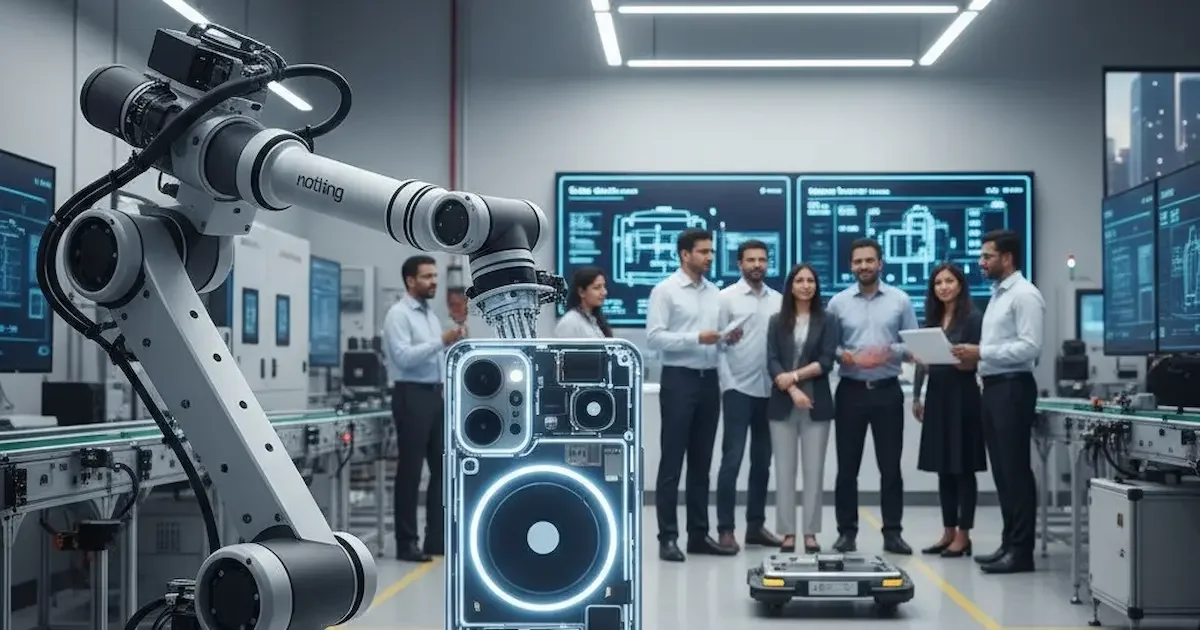Look, the tech world loves a good narrative. You've got the Silicon Valley wunderkind, the Chinese manufacturing behemoth, and the scrappy startup trying to change the world. Carl Pei, the guy who co-founded OnePlus and then left to start Nothing, has always been a master of crafting a story.
His latest chapter? A $100 million bet on India.
And let's be real, this isn't just about money. It's a statement. While other tech giants are still treating India like a giant, chaotic marketplace to dump their products, Pei is planting a flag. He's not just selling here; he's building here.
This move, a joint venture with Indian electronics manufacturer Optiemus, isn't just another boring corporate announcement. It’s a calculated, savvy play that says a lot about the future of tech, both in India and globally.
So, What's the Big Deal?
On the surface, the numbers are straightforward: $100 million USD (that's over ₹830 crores, for those counting at home) invested to create 1,800 new jobs. The goal is to set up a full-fledged manufacturing operation right here in India.
This isn't some token "assembly line" where they just screw together parts shipped in from China. The plan is to build a significant portion of Nothing's product ecosystem on Indian soil. Think everything from their distinctive transparent phones to their audio gear and future gadgets we haven't even seen yet.
For years, the "Make in India" slogan has been chanted from every political podium. Some companies paid lip service to it, while others just saw it as a way to avoid import taxes. What Nothing is doing feels different. It feels less like a corporate obligation and more like a core part of their strategy.
Why? Because Carl Pei isn't an idiot. He understands one fundamental truth that many Western execs miss: India is not just a market; it's the future of the market.
The Unsexy Truth: Why This Makes Perfect Sense
Let's be brutally honest. Building things in China is getting more expensive and politically complicated. The world is looking for the "next China," and India, with its massive, young workforce and growing technical expertise, is the most obvious candidate.
But this isn't just about cheap labor. This is about building a resilient supply chain in a world that’s become way too reliant on one country. It's about getting closer to one of your biggest and most passionate customer bases. Nothing has cultivated a cult following in India, and by manufacturing here, they can shorten delivery times, reduce costs, and integrate more deeply into the local ecosystem.
The partnership with Optiemus is the key. Optiemus isn't some random factory; they have experience manufacturing for brands like LG and BlackBerry. They understand the nuts and bolts of making high-quality electronics in India. Nothing brings the design, the brand, and the marketing genius. Optiemus brings the manufacturing muscle and the local know-how. It's a classic brains-and-brawn team-up.
Beyond the Jobs and Money
Here’s the part that really matters. This $100 million investment is a vote of confidence. It’s a signal to the rest of the tech world that India is ready for serious, high-stakes manufacturing. We're not just talking about low-end phones anymore; we're talking about building design-led, globally recognized tech products.
The creation of 1,800 jobs isn't just a number. These are jobs in advanced manufacturing, in R&D, in logistics—the kind of skilled employment that actually builds a modern economy.
For Carl Pei, this move solidifies his reputation as a forward-thinker. He built OnePlus by understanding what young, tech-savvy consumers wanted. Now, he's building Nothing by understanding the next big shift in global manufacturing.
This isn't a charity project. It's a cold, hard, and incredibly smart business decision. And it's one that could pay massive dividends for both Nothing and for India's ambitions to become a true global tech powerhouse. It’s a story worth paying attention to.
